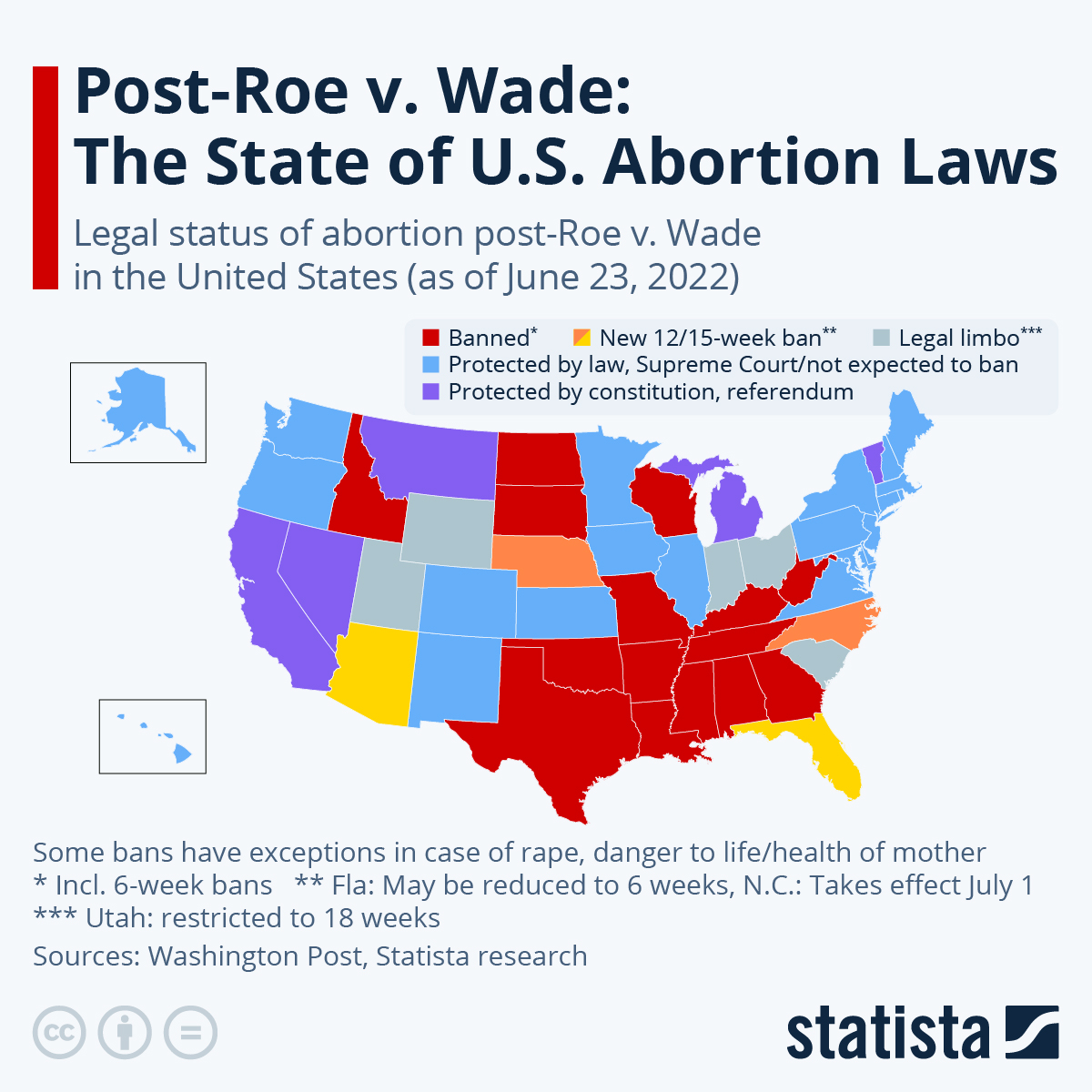
A draft obtained by Politico shows the majority of the US Supreme Court judges in favour of overturning Roe v. Wade, the precedent enshrining abortion as a constitutional right in the United States. If the draft was to turn into a bonafide decision, this would deal a serious blow to abortion rights in the country.
In the now likely case that the court will allow states to end all abortions, around half of US states are expected to do just that. According to the Center for Reproductive Rights, abortions would be banned in many states across the South, Midwest and Western United States upon such a decision.
According to the Guttmacher Institute, this would severely limit abortion coverage for women in these areas. The next provider would be an average of more than 200 miles driving distance away in Michigan and Georgia, more than 300 miles away in Alabama, more than 500 miles away in Texas and more than 600 miles away in Louisiana.
In many Northeastern states and West Coast states, abortion rights are protected by state laws or state Supreme Court decisions. Some states have recently moved to codify or strengthen abortion rights, for example, Vermont and Colorado. Additionally, Virginia, Pennsylvania, New Mexico and New Hampshire are not expected to end abortions upon the Supreme Court decision despite a lack of state protections.
The case the court is hearing at the moment centres around a Mississippi law that outlaws abortions after 15 weeks. As part of Roe v. Wade and later Planned Parenthood v. Casey, the Supreme Court has established fetal viability as a standard for when abortions can be performed. This had previously set the precedent for states allowing abortions of healthy pregnancies up until 22 to 26 weeks of gestational age, which is when a fetus becomes viable outside the womb. Alternatively, states have simply cited viability as a rule – a fact that the Mississippi law is now challenging.
As part of the now anticipated decision both the right to abortion and the viability standard for determining until when abortions are legal will fall. This would also allow states to set shorter time limits on the procedure instead of outright banning it.
The Mississippi law actually comes closer to abortion limits set in most European countries (at 14 weeks of gestational age or the end of the first trimester), while a new Texas law banning them after six weeks is far from international standards.
Six weeks of gestation equal just four weeks of pregnancy and just three weeks after a missed period. Idaho has also signed six-weeks “Texas-style” legislation into law, but it was swiftly blocked, while a similar law is on the governor’s desk in Oklahoma.
This report first appeared on Statista. Read the original article here.




